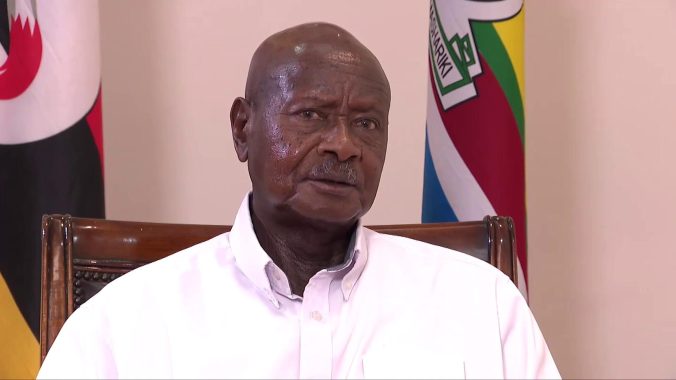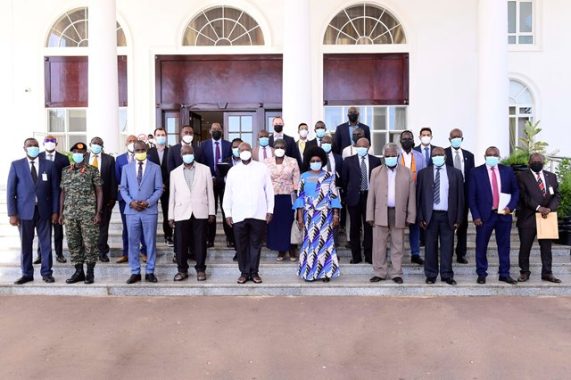The Uganda Muslim Supreme Council has raised a red flag indicating that Parliament was likely to ignore the importance of the Sharia Law when considering the Succession Amendment Bill.
Legislators on the Legal and Parliamentary Affairs Committee are scrutinizing the Bill that was last month tabled by the Government after Speaker Jacob Oulanyah ruled that the 11th Parliament will not consider business handled by the last Parliament.
The Succession Amendment Bill, which had been passed in March, was returned by President Yoweri Museveni, who declined to sign it after raising issues with some of the provisions.
When it was returned, the Bill fell into the category of business blocked by the Speaker, hence a need to be retabled instead of the relevant Committee considering the clauses that the President had questioned.
The objective of the Bill was to ensure there was a solution to the problems that arise in the sharing of the wealth left by a spouse who dies interstate or without leaving a written will.
However, like it was when the Bill was last passed, the Muslims who strictly follow the Sharia Law when families are dealing with estates of their deceased loved ones, have questioned the motive of the Bill without providing for the Islamic Personal law.
Appearing before the Committee chaired by Gomba West MP Robinah Rwakoojo, officials from the Uganda Muslim Supreme Council led by Deputy Mufti, Ali Waiswa, insisted that it would be an injustice for the Succession Amendment Bill to be passed in total disregard of Islamic law.
“Those who believe in the Succession Amendment Bill, 2021 are free to proceed with it but should be aware of the injustices it might cause to Ugandans in the future. While the Bill might have been drafted in good faith, it is strongly observed that the Bill has no bearing whatsoever in relation to Islamic inheritance that is envisaged under the Islamic law and is envisaged under Article 129(1)(d) of the Constitution,” reads part of the statement submitted before the Committee.
The Muslims do not agree with the formula suggested in the Bill as to how families will share properties when a spouse dies intestate or without a written will.
They asked Parliament to provide a clause in the Bill that will refer to the Islamic Personal Law when referring to the sharing of properties of muslims when they die because the formula varies from that of other religions.
Deputy Mufti Waiswa told the MPs that much as the muslims are among the minority religions in the country, they contribute a lot in the economic development of the country and such is through the wealth some of them have created.
He argued that the issues of inheritance are clear in the Islamic law and have been followed all over the world, hence a need for Uganda not to act unique to other countries.
“This inheritance in Islamic law is not starting with Uganda but it is in the whole world. Muslims minus this law (sharia law) we would not be muslims. As we appeal for this, we only request that muslims be empowered to practice their faith which will not be imposed on others,” said Waiswa.
The Bill, which was passed before being returned to Parliament by the President on technical issues, gives authority to a woman to sell property obtained before, in and after getting married without consulting her husband, something that is contrary to sharia and customary law.
MPs had provided for the sharing formula of the property of a deceased spouse as; 20 percent going to the widow; 75 percent to the lenial children; 4 percent to the dependants; and 1 percent to the Customary heir.
Another controversial provision of the Bill was the suggestion that the principal home (s) shall not be disposed of whether one died with or without a will because it remains a property of the family since there is a surviving spouse and children or dependents.
Other issues in the Bill.
•The Bill makes it compulsory for men to provide for their spouses, lineal descendants and dependant relatives in their wills and emphasizes that the principal residence of a testator shall not form part of the property to be disposed of in a will, except where the man makes reasonable provision for the accommodation at the same station in life, for the spouse and the children who occupy the principal residence at the time of his or her death.
• It upholds Article 32 of the Constitution (affirmative action) by allowing married women to dispose of any property which they would be entitled to dispose of during their life or which they are entitled to under a will.
• The Bill repeals the definitions of legitimate and illegitimate children and replaces the age of minority of twenty-one years with eighteen years per the Constitution.
• It provides that either parent of a minor may, by will, appoint a guardian for the minor.
• The Bill makes an addition to the legal requirements of making a will that is valid in law. The clause makes it a requirement for each of the witnesses to write their name and address on the last page of the will in the presence of the testator.
• The Bill seeks to amend the Act by providing that where a will is handwritten or produced in a typed format by a person other than the testator, on the instructions of the testator, and that person who writes or produces the will has a benefit given by the will, either by way of a bequest or by way of appointment, the bequest or appointment shall be void, so far as concerns the person who wrote or produced the will, or the spouse of that person or any other person who would claim under that person or under the spouse of that person.
• The Bill also creates offenses and penalties against executors or administrators who, before the grant of probate, misapply the estates of the deceased, or subject the estates to loss or damage.
For more news checkout : https://www.facebook.com/GalaxyFm1002/






















